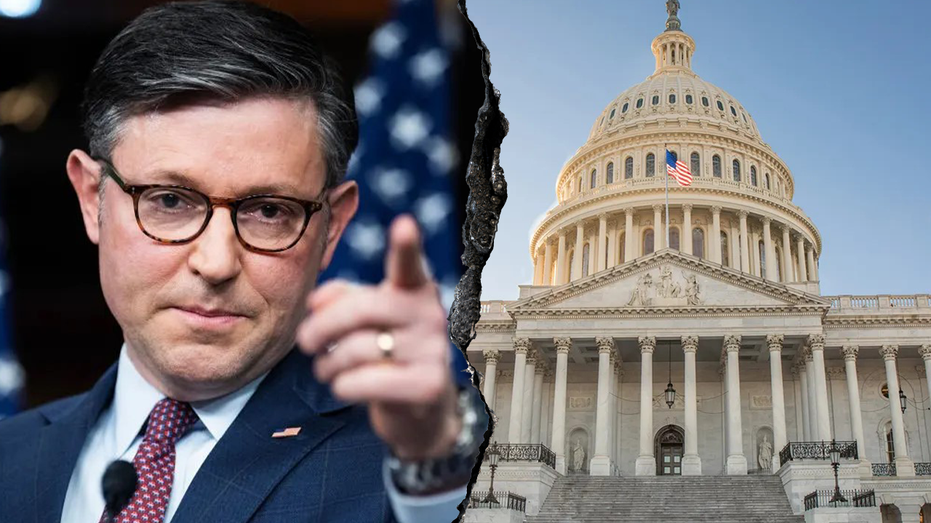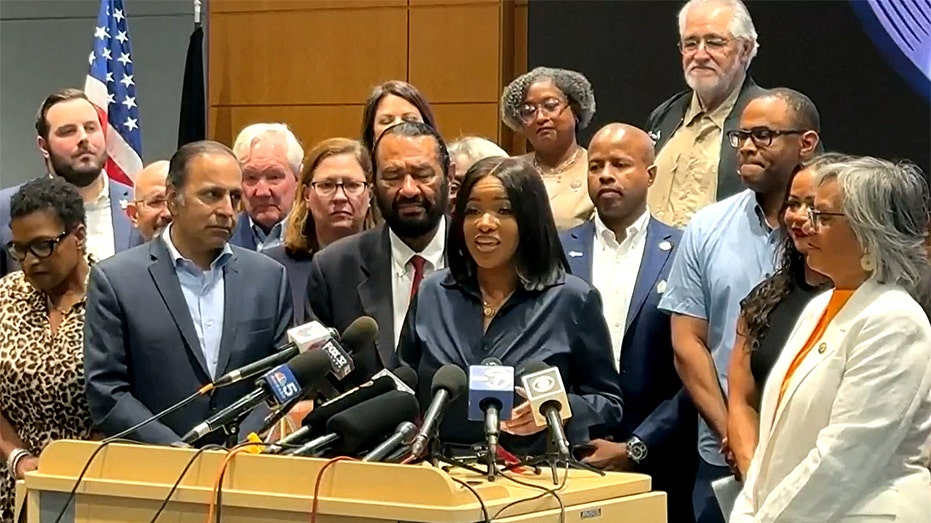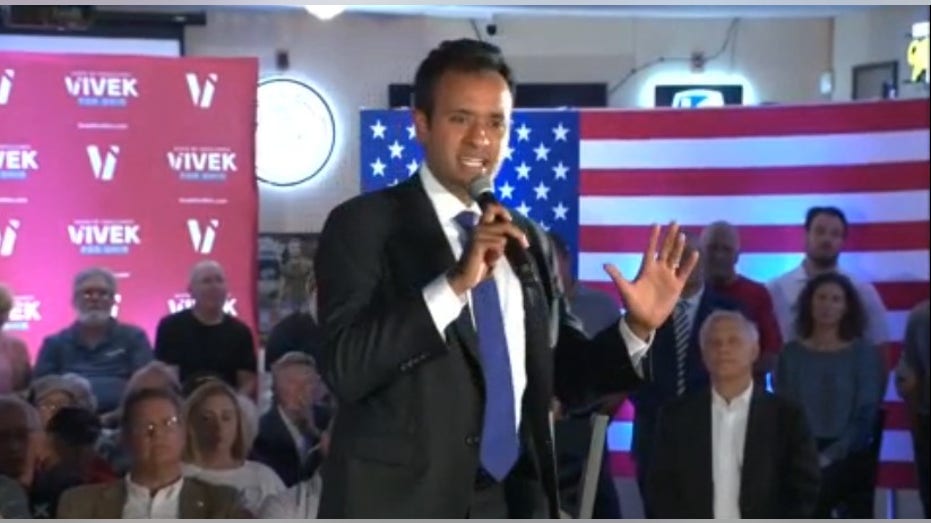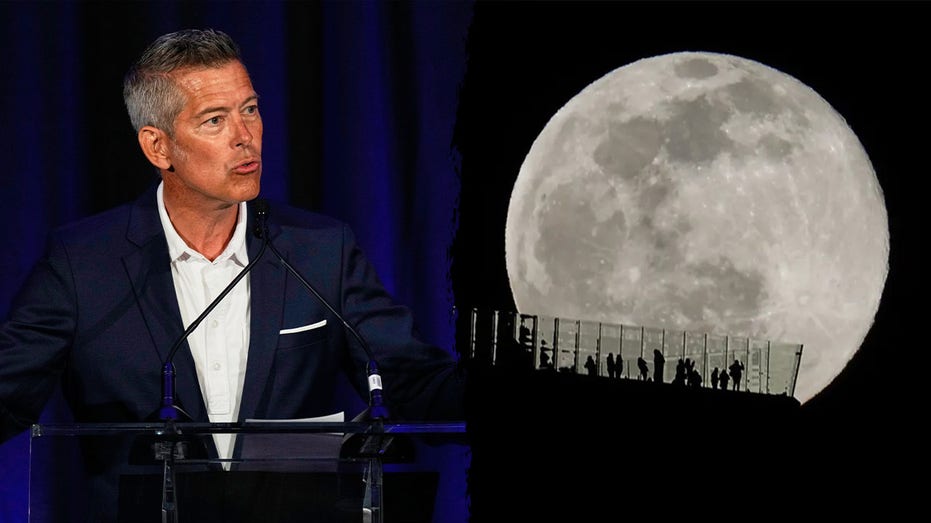How Johnson pulled off another impossible win with just 1-vote margin on $9.4B spending cut bill

It came down to one vote last Thursday afternoon.
Again.
That’s often the case in the House of Representatives. The GOP sports a modest eight-vote margin in the House. 220-212 with three vacancies. Republicans can only lose three votes and still pass a bill without Democratic assistance.
REPORTER’S NOTEBOOK: WHY THE SENATE IS UNLIKELY TO DEBATE THE ‘BIG, BEAUTIFUL BILL’ UNTIL NEXT WEEK
And when the House closed the roll call, lawmakers voted 214-212 to strip USAID and public broadcasting of $9.4 billion. This was the first “rescissions” bill by the House. An effort to claw back money which lawmakers just green-lit in March. But flip one vote, and the measure would have collapsed. A 213-213 vote doesn’t get it. By rule, ties fail in the House.
The bill represented the first chance for the GOP to make good on proposed cuts from DOGE. From a constitutional standpoint, DOGE can only recommend cuts. Congress has authority over spending. That means lawmakers must vote on every dollar. Lawmakers appropriated the money, but they must also vote to take it back.
No vote, no cuts. It’s that simple.
Earlier in the day on Thursday, it was unclear whether congressional Republicans had the votes to approve the spending cancellation package. It’s known as a “rescissions” bill because it “rescinds” money already approved by Congress. But the stakes for this bill were hard to understate for the GOP. Republicans crow a lot about cutting spending and reducing the deficit. But unless you can actually pass a bill to cut spending, talk is cheap.
And government programs are expensive.
All of official Washington would have trained its attention on the House floor late Thursday afternoon to see how Republicans fared with the spending cancellation request. But the shocking video of the feds tangling with Sen. Alex Padilla, D-Calif., and handcuffing him quickly consumed every cubic centimeter of news oxygen.
The Congressional Hispanic Caucus and California Democrats planned to march to the office of Senate Majority Leader John Thune, R-S.D. A cavalcade of angry Democratic senators seized the Senate floor, excoriating the Trump Administration’s tactics and demanding action from Thune and House Speaker Mike Johnson, R-La. A wild scene erupted in the House Oversight Committee. Rep. Maxwell Frost, D-Fla., demanded that Oversight Committee Chairman James Comer, R-Ky., commit to subpoenaing Homeland Security Secretary Kristi Noem after the Padilla fracas.
“Will you just shut up!” implored Comer of Frost. “Just shut up! Shut up!”
“You’re not going to tell me to shut up!” bellowed Frost.
“He’s been arrested as a former Antifa member,” piled on Rep. Marjorie Taylor Greene, R-Ga.
You see why it was hard for the press corps to concentrate on the rescissions vote.
But back to the House floor.
The bill was heading to defeat midway through the roll call. Six Republicans posted nay votes on the board.
Rep. Nicole Malliotakis, R-N.Y. was among them. She told reporters her constituents supported public broadcasting. And she didn’t like the mechanics of the administration sending a request to Congress to rub out spending.
“I think this does give too much discretion to the White House to make cuts when we are the House that has the power of the purse,” said Malliotakis. “And I’ve seen some of the cuts, as I’ve said in the past, the World Trade Center Health program, the Women’s Health program. These are things that we had to go fight and get restored.”
But there were huddles on the floor during the vote itself. Rep. Nick LaLota, R-N.Y., chatted with Johnson and House Majority Whip Tom Emmer, R-Minn. A few moments later, LaLota and Rep. Don Bacon, R-Neb., who was a no, switched their ballots to yes.
Republicans gaveled the vote closed at 214-212.
“I ultimately voted yes after a conversation or two with the Speaker and the Whip raised my confidence level,” said LaLota. “I trust those two individuals. We’ve dealt with each other for the last couple of years. We’ve gotten on the same page.”
Bacon had spoken glowingly in recent days about his relationship with public broadcasters in Nebraska. He also had reservations about cutting PEPFAR, the global AIDS mitigation effort. But now Bacon didn’t fry his party.
“I was assured that PBS would receive funding in this year’s budget. And I discussed PEPFAR with the speaker,” said the Nebraska Republican.
A few moments later, Johnson was outside the House chamber, bragging about his colleagues for passing the bill.
“We are fulfilling the promises we made to the American people,” said Johnson. “Today’s passage of this initial rescissions package marks a critical step towards a more responsible and transparent government that puts the interests of the American taxpayers first.”
Failing to pass this teardrop of spending reductions amid a deep federal sea would have been catastrophic for the GOP. Again, especially because of all the braggadocio about cutting spending. Now Republicans can focus on bigger and more controversial spending cut requests from the Trump administration.
But few reporters cared much about what Johnson had to say at that moment because of the immediate mania involving Padilla. The Capitol descended into chaos. The outcome of the critical vote was relegated to a footnote on a wild news day. By nightfall, no one was talking about the rescissions package at all. Let alone Padilla.
Despite the staggering news traffic, the vote notched yet another narrow victory for Johnson and House Republicans. Like it or not, Johnson has piloted the fractious House Republican Conference to a series of slim victories on tough bills all year long.
In February, the House narrowly approved its initial framework for the Big, Beautiful Bill. The outline was essential to help ease eventual passage in the Senate. At one point, it looked like Republicans lacked the votes. In fact, House leaders began sending Members home for the night. Then, they suddenly reversed themselves. Johnson and the GOP eked out a 217-215 victory, approving the framework and sending it to the Senate.
Switch one vote, and the gig was up. The House and Senate would not be on the same page with a budget framework for the touchstone of President Trump’s agenda. That would neutralize the entire exercise.
A few weeks later, the House approved an interim spending bill to avoid a government shutdown, 217-213. Again a narrow vote. Only Rep. Thomas Massie, R-Ky., voted nay. Flip two votes and the tally is 215-215. Again, a tie vote kills the bill.
The Senate okayed one framework for the Big, Beautiful Bill in February. Another one in the spring. But the House and Senate still weren’t on the same page. In mid-April, the House and Senate finally aligned. The House adopted the Senate’s final blueprint for the Big, Beautiful Bill, 216-214. Massie and Rep. Victoria Spartz, R-Ind., voted nay. Again, change one vote and it’s a tie. Defeat would have stalled the process for the Big, Beautiful Bill.
Finally, Johnson and the GOP scored perhaps their biggest win of the year in mid-May. The House voted 215-214 with one member voting “present” to pass the initial version of the Big, Beautiful Bill and send it to the Senate. Rep. Andrew Garbarino, R-N.Y., had problems with the bill. But missed the vote because he fell asleep as the House debated the measure in the middle of the night. House Freedom Caucus Chairman and Rep. Andy Harris, R-Md., also had reservations. But he cast the “present” vote. Either of these members could have tanked the legislation had they voted nay.
Former House Speaker Nancy Pelosi, D-Calif., was the master at lugging challenging votes across the finish line by a vote or two. She’s the reason Obamacare passed. But Pelosi often had larger majorities. Her secret sauce was understanding what members needed to vote yes on controversial legislation.
The speaker has Trump on his side and a GOP conference that is willing to do practically whatever he wants. That helps a lot. But Johnson’s resume of pushing through tough bills by the tiniest of margins is beginning to mirror Pelosi’s success. However, the level of difficulty is higher for Johnson thanks to the minuscule majority.
Pelosi was a parliamentary maestro when she was Speaker. And so far during his speakership, Johnson has defied political gravity. But whether you like Johnson’s politics or not, keen political observers are noticing that he has a knack for pulling off the seemingly unachievable. That was long the calling card of Pelosi.
And it may eventually prove to be the calling card of Johnson, too.



